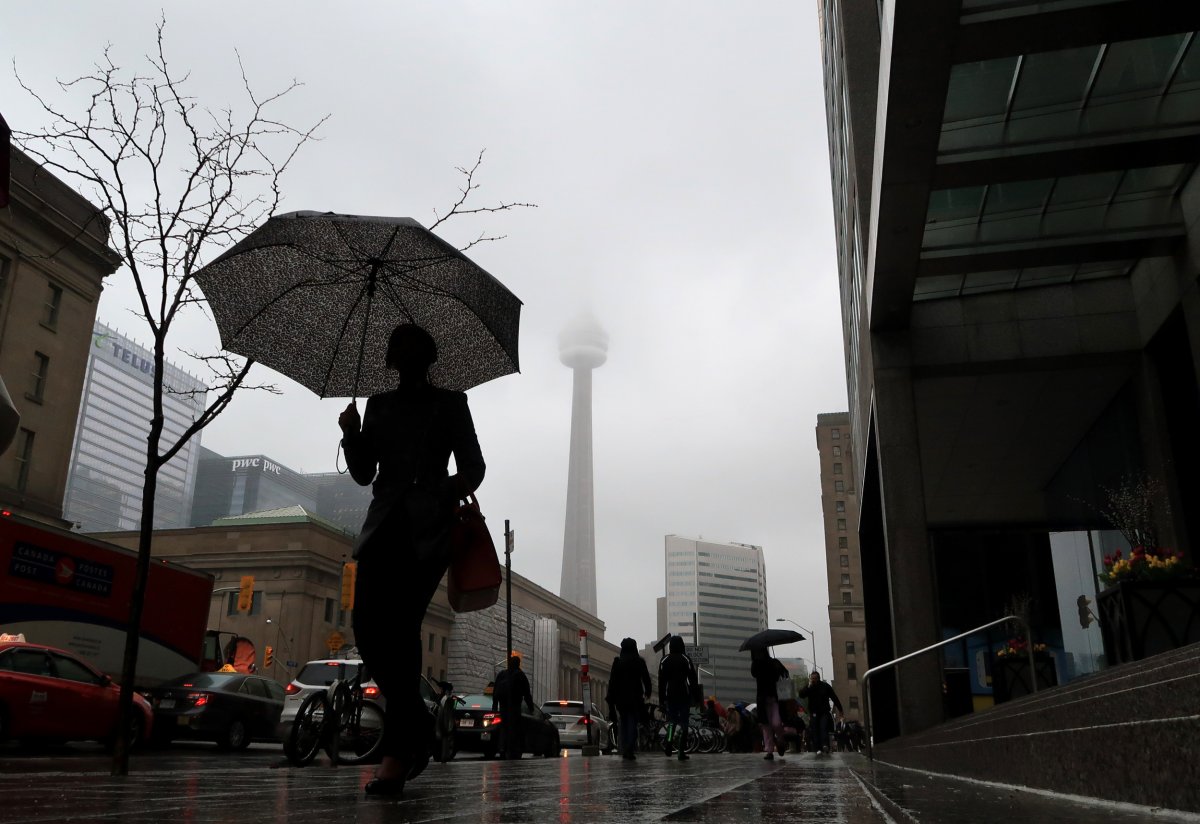The Toronto municipal government's idea to introduce a new homeowner charge which critics have dubbed a "rain tax" has sparked outrage and criticism from many, including Donald Trump Jr., the son of the former U.S. president.
The proposed "stormwater charge" would hit homeowners for their property's impact on runoff to the Canadian city's storm sewer system, in an attempt to encourage people to keep grass and plants on their property rather than paving their land with concrete. The charge would be based on the amount of hard surface area on their property, including roofs, asphalt driveways, parking lots and concrete landscaping, according to Toronto's city authorities.
"Stormwater is rain and melted snow. When not absorbed into the ground, stormwater runs off hard surfaces, onto streets, down storm drains and through a network of pipes that carry it into local waterways," Toronto City wrote on its website.
"In urbanized areas like Toronto, there are a lot of hard surfaces. [...] Too much stormwater can overwhelm the city's sewer system, which can lead to flooded basements and impacts to surface water quality in Toronto's rivers, streams and Lake Ontario's waterfront."

The proposed charge has sparked angry reactions and criticism in Canada and the U.S., with Warren Kinsella, founder of the political campaign strategy firm Daisy Consulting Group, writing an opinion piece in the Toronto Sun accusing city authorities of wanting to tax the rain, an idea he described as "insanity."
Kevin Vuong, a Canandian Parliament member representing Spadina, Fort York, commented on the proposed measure on X, formerly known as Twitter, writing: "Because people in #Toronto aren't already struggling enough to make ends meet, the NDP's OliviaChow wants to implement."
Because people in #Toronto aren’t already struggling enough to make ends meet, the NDP’s @OliviaChow wants to implement:
— Kevin Vuong (@KevinVuongMP) March 25, 2024
“A rain tax.
Seriously, they want to tax the rain.” https://t.co/9Dg3ipfcqR
Newsweek contacted Aadila Valiallah, Senior Public Consultation Coordinator for Toronto City, and Kevin Vuong's office for comment respectively by email and via phone on Tuesday morning.
In the U.S., Donald Trump Jr. commented on the proposed measure writing on X: "I'm sure it will end at the "Rain Tax" They definitely won't just confiscate whatever they want in the not too distant future!!!"
I’m sure it will end at the “Rain Tax” 🙄
— Donald Trump Jr. (@DonaldJTrumpJr) March 25, 2024
They definitely won’t just confiscate whatever they want in the not too distant future!!! https://t.co/VVWrvSLNoM
The water rate that Toronto homeowners currently pay already includes costs for stormwater management. The new measure would remove the stormwater charge from the current water rate and create an individual tax based on the impact that a property could have on the city's sewage system during rainfall. This charge would appear as a separate line on the utility bill.
The Canadian city is currently consulting the public about the creation of the stormwater charge and is open to hear their opinion until April 30. A report on the outcome of the consultation is set to be made available to the public in the summer.
In the U.S., Maryland introduced a similar "rain tax"—or more accurately, a stormwater fee—years ago, charging property owners for the service of managing the polluted runoff coming from their property when it rains. Similar fees are in place in Washington, D.C., and other cities and towns across the country. This fee is technically not a tax.
Scientific studies have found that non-porous concrete, including paving, asphalt, brick and stone—can be linked to the growing phenomenon of urban flooding during extreme weather events. Stormwater systems play a crucial role in avoiding possible devastating flooding in urban centers.
About the writer
Giulia Carbonaro is a Newsweek Reporter based in London, U.K. Her focus is on U.S. and European politics, global affairs ... Read more



